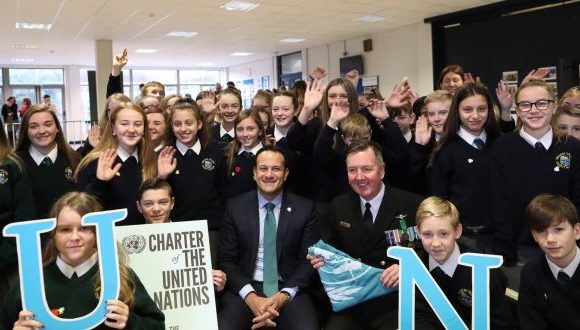How CEOs support and attract talent is changing because of the challenging global economy and CEOs’ growth goals, with fostering workforce resilience becoming a key priority, according to KPMG Ireland.
Worldwide, the employee value proposition to attract and retain the necessary talent is tied as the top operational priority to achieving 3-year growth objectives (25 percent, up from 19 percent in 2021). Meanwhile, CEOs in Ireland (72 percent ROI, 68 percent NI) agree that the ability to retain talent with the pressures of inflation/rising cost of living is top of mind (66 percent globally).
ESG in Recruitment
The approach to ESG is increasingly seen as a differentiator when it comes to attracting and retaining talent. Of the global CEOs that mentioned they were seeing significant demand for greater ESG transparency and reporting, 26 percent noted the biggest demand was coming from their employees and new hires (25 percent ROI and 15 percent NI). They also note that one of the primary downsides to not meeting ESG expectations was recruitment challenges (22 percent) a similar figure to NI (20 percent) however this was a factor for only 8 percent in ROI.
Nicola Downing, CEO of Ricoh Europe, says having the right people with the best skills is integral to Ricoh’s vision and strategy for the future, saying “we have had an opportunity to really focus on our employees — to be more open and honest about things like mental health and wellbeing. We’ve invested in training our people, pushing for change and updating skills to match our new innovations, portfolio and what our customers need. We want our people to move with us. The skills our team needs today are different from what we planned for, because the challenges facing global business, and the pace of change and transformation, has definitely increased.”
Global Slowdown Hits Hiring
With possible recession being flagged in many markets, there’s a significant worldwide short-term emphasis on hiring freezes and headcount reductions.
Globally, 39 percent of CEOs have already implemented a hiring freeze (32 percent in ROI and 52 percent in NI), and 46 percent are considering downsizing their workforce over the next 6 months (52 percent ROI and 36 percent in NI). But when CEOs take a longer-term view, 79 percent expect their organisation’s headcount to increase over the next 3 years – this rises to over 9 in 10 (92 percent) in both ROI and NI. Meanwhile, CEOs are still investing in their existing workforce, with almost half currently focused on boosting productivity both globally and in both ROI and NI.
Alexis George, CEO of AMP, says it has been challenging to secure all kinds of talent — from frontline customer service reps to skilled technologists — due to lower unemployment rates in many markets, saying, “there’s almost full employment at a time where we are also seeing rising interest rates and inflation. It’s an unusual situation. However, for companies that are in a strong position, there could be opportunities to entice and retain talent. Having great talent makes us a better, more secure business which can only be a good thing as we head into economic uncertainty.”
Promoting a Spirit of Experimentation
Hybrid and remote working has had a positive impact on hiring, collaboration and productivity over the past 2 years.
However, many multinational organisations are launching return-to-office plans to usher in a “return to normal”, and 65 percent of CEOs envision in-office as the go-to work environment in 3 years’ time for those who were office-based prior to the pandemic. (84 percent in ROI and 72 percent NI). Employee expectations when it comes to remote work are evolving, so it’s important for CEOs to develop a better working structure that suits their people in what is still an emerging area.
Even if the supply-demand side of labour shifts in favour of businesses, CEOs need to make sure their people have purposeful interactions. How do CEOs define what an optimal structure looks like? Now is the time to experiment and see what works best. Active listening, empathetic communications and a commitment to finding the right balance over the long term will be key.
Despite the disruption caused by the pandemic, COVID-19 ultimately helped Fujitsu advance its own transformation. President and CEO Takahito Tokita says, “COVID-19 helped progress various initiatives for digital experience companies. Like many other organisations, we moved employees into a remote working environment and away from paperwork to digital and web-based alternatives. I believe the most important thing is for employees to accumulate the skills needed to achieve their own goals and objectives.”
Source: KPMG Ireland













